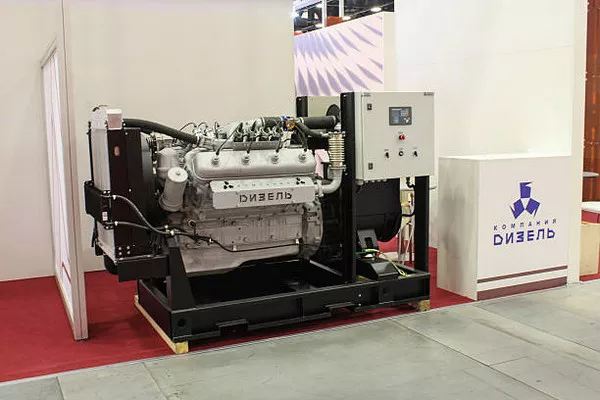In an era where power outages can disrupt daily life and business operations, standby generators have become indispensable assets. Among the leading names in the generator industry, Generac stands out for its reliability and innovation. One crucial aspect of understanding and optimizing the performance of Generac generators is knowing what fuels these powerhouses. In this article, we delve into the diverse range of fuels that power Generac generators, exploring the advantages, considerations, and future trends.
Diverse Fuel Options
Generac generators are designed to offer versatility when it comes to fuel options. This flexibility allows users to choose the most suitable fuel source based on availability, cost, and environmental considerations. The primary fuel options for Generac generators include natural gas, liquid propane (LP), and diesel.
Natural Gas
Natural gas is a widely used fuel source for Generac generators, known for its convenience and accessibility. The infrastructure for natural gas delivery is well-established in many urban and suburban areas, making it a readily available option for homeowners and businesses alike. Generac generators running on natural gas are typically connected to the existing gas supply line, ensuring a continuous and reliable source of fuel.
One of the key advantages of natural gas is its cleanliness. When burned, natural gas produces fewer emissions compared to other fossil fuels, contributing to a more environmentally friendly power generation process. Additionally, natural gas generators require less maintenance than some other types, resulting in lower operational costs over time.
Liquid Propane (LP)
Liquid propane, also known as LP or propane, is another popular fuel choice for Generac generators. LP is stored in liquid form in specially designed tanks, providing a portable and efficient fuel solution. This flexibility is particularly advantageous for areas without a natural gas infrastructure or in situations where mobility is a key consideration.
Propane generators offer a clean and efficient combustion process, with lower emissions compared to traditional diesel generators. The storage of propane in liquid form allows for longer shelf life and ease of transport, making it a reliable choice for both stationary and mobile generator applications.
Diesel
Generac generators powered by diesel are well-suited for a variety of applications, ranging from industrial backup power to remote construction sites. Diesel generators are known for their durability, robustness, and fuel efficiency. The high energy density of diesel fuel allows for extended runtimes, making it a preferred choice for continuous and long-duration power needs.
Diesel generators are often favored in critical applications where a constant and stable power supply is non-negotiable. While diesel generators tend to have higher upfront costs compared to some other options, their efficiency and longevity often justify the investment over time.
Considerations for Choosing the Right Fuel
Selecting the most suitable fuel for a Generac generator involves careful consideration of various factors. Some of the key considerations include:
Availability and Infrastructure: Assess the availability of fuel sources in your area and the existing infrastructure. Natural gas is often a convenient choice for urban and suburban locations, while propane and diesel may be preferable in more remote or off-grid settings.
Cost: Compare the costs associated with different fuel sources, considering not only the price per unit but also the overall efficiency of the generator. While natural gas may be cost-effective in some regions, propane or diesel could be more economical in others.
Environmental Impact: Consider the environmental impact of each fuel option. Natural gas and propane are generally cleaner-burning fuels, contributing to reduced emissions. Diesel, while efficient, produces more emissions and may be subject to stricter environmental regulations.
Storage and Transport: Evaluate the practicality of storing and transporting the chosen fuel. Propane’s liquid form allows for efficient storage, while diesel may require specialized tanks and careful handling.
Generator Application: Tailor the choice of fuel to the specific requirements of your generator application. For residential backup power, natural gas or propane may be suitable, while diesel generators may be more appropriate for industrial or off-grid use.
Future Trends in Generator Fuels
As technology advances and environmental concerns continue to shape the energy landscape, the future of generator fuels is undergoing significant developments. Some emerging trends in generator fuels that may impact Generac generators include:
Renewable Fuels: The integration of renewable fuels, such as biofuels and hydrogen, is gaining traction in the generator industry. These fuels offer a more sustainable and eco-friendly alternative to traditional fossil fuels, aligning with the global push toward cleaner energy solutions.
Hybrid Systems: Hybrid generator systems, combining multiple fuel sources or integrating energy storage solutions, are becoming more prevalent. These systems optimize fuel usage, enhance efficiency, and provide greater resilience in dynamic energy environments.
Energy Storage Integration: The integration of energy storage technologies, such as batteries, allows generators to work in tandem with stored power. This not only improves overall system efficiency but also enables seamless transitions between grid power and generator operation.
Conclusion
Understanding the diverse fuel options for Generac generators is crucial for making informed decisions about backup power solutions. Whether powered by natural gas, propane, or diesel, Generac generators are designed to provide reliable and efficient performance in a variety of applications. As technology continues to evolve, the generator industry is poised to embrace new and innovative fuel sources, contributing to a more sustainable and resilient energy future. By staying informed about these developments, users can ensure that their Generac generators remain at the forefront of cutting-edge power generation technology.

